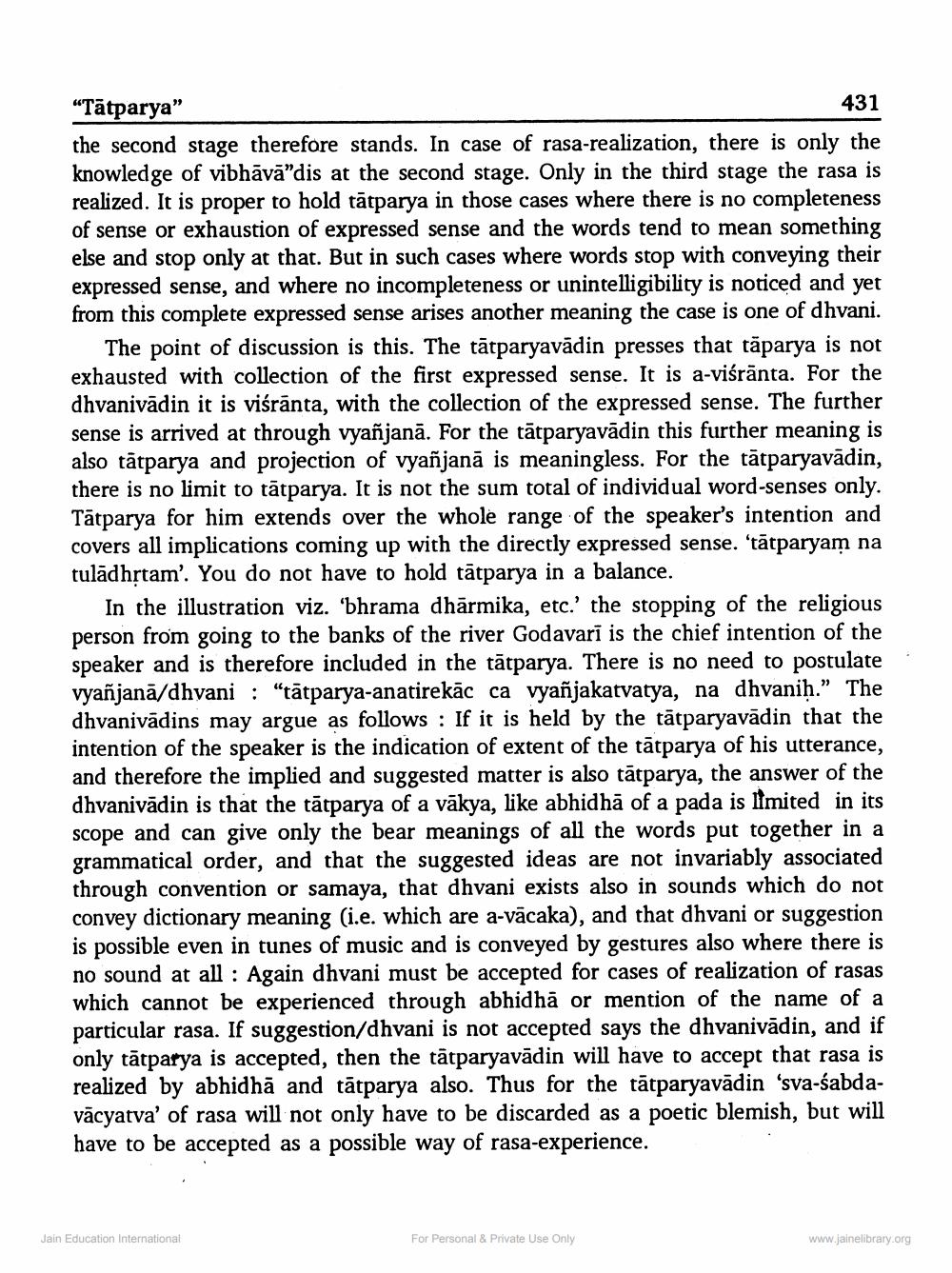________________
"Tātparya"
431
the second stage therefore stands. In case of rasa-realization, there is only the knowledge of vibhāvā"dis at the second stage. Only in the third stage the rasa is realized. It is proper to hold tātparya in those cases where there is no completeness of sense or exhaustion of expressed sense and the words tend to mean something else and stop only at that. But in such cases where words stop with conveying their expressed sense, and where no incompleteness or unintelligibility is noticed and yet from this complete expressed sense arises another meaning the case is one of dhvani.
The point of discussion is this. The tātparyavādin presses that tāparya is not exhausted with collection of the first expressed sense. It is a-viśränta. For the dhvanivādin it is viśrānta, with the collection of the expressed sense. The further sense is arrived at through vyañjanā. For the tātparyavādin this further meaning is also tātparya and projection of vyañjanā is meaningless. For the tātparyavādin, there is no limit to tātparya. It is not the sum total of individual word-senses only. Tātparya for him extends over the whole range of the speaker's intention and covers all implications coming up with the directly expressed sense. 'tātparyam na tulādhịtam'. You do not have to hold tātparya in a balance.
In the illustration viz. 'bhrama dhārmika, etc.' the stopping of the religious person from going to the banks of the river Godavarī is the chief intention of the speaker and is therefore included in the tātparya. There is no need to postulate vyañjanā/dhvani : "tātparya-anatirekāc ca vyañjakarvatya, na dhvanih.” The dhvanivādins may argue as follows : If it is held by the tātparyavādin that the intention of the speaker is the indication of extent of the tātparya of his utterance, and therefore the implied and suggested matter is also tātparya, the answer of the dhvanivādin is that the tātparya of a vākya, like abhidhā of a pada is limited in its scope and can give only the bear meanings of all the words put together in a grammatical order, and that the suggested ideas are not invariably associated through convention or samaya, that dhvani exists also in sounds which do not convey dictionary meaning (i.e. which are a-vācaka), and that dhvani or suggestion is possible even in tunes of music and is conveyed by gestures also where there is no sound at all : Again dhvani must be accepted for cases of realization of rasas which cannot be experienced through abhidhā or mention of the name of a particular rasa. If suggestion/dhvani is not accepted says the dhvanivādin, and if only tātparya is accepted, then the tātparyavādin will have to accept that rasa is realized by abhidhā and tātparya also. Thus for the tātparyavādin 'sva-sabdavācyatva' of rasa will not only have to be discarded as a poetic blemish, but will have to be accepted as a possible way of rasa-experience.
Jain Education International
For Personal & Private Use Only
www.jainelibrary.org




